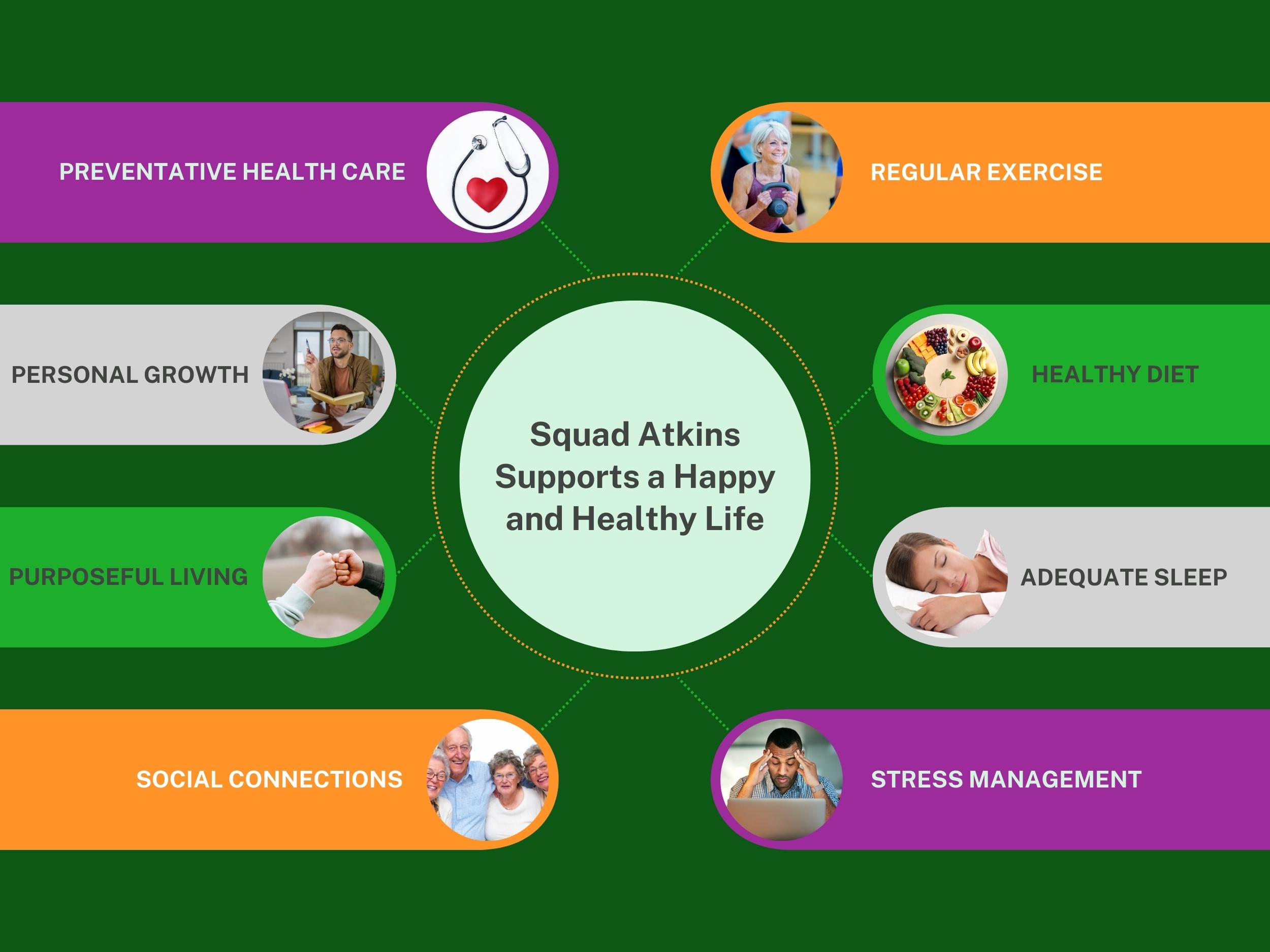
Social Connections
Social connections play a pivotal role in promoting good health and well-being. Humans are inherently social creatures, and strong, positive relationships can provide emotional support, reduce stress, and enhance mental health. Studies have shown that individuals with robust social networks tend to have lower risks of heart disease, high blood pressure, and obesity, among other health conditions. Additionally, being socially connected can help improve resilience and the capacity to cope with life's challenges. It can lead to increased feelings of belonging, purpose, and happiness. Conversely, social isolation or loneliness can have negative impacts on both physical and mental health, highlighting the importance of fostering and maintaining social bonds.
Stress Management
Exercise is a powerful tool for managing stress and enhancing mental well-being. When you engage in physical activity, your body releases endorphins, which are natural mood lifters that can keep stress and depression at bay. Exercise also promotes better sleep, which is often disrupted by stress, depression, and anxiety. It provides a healthy outlet to vent frustrations, allowing for mental relaxation and distraction from worries or negative thought cycles. Regular physical activity can also boost your confidence and improve your self-esteem, leading to increased mental resilience against stress. In essence, incorporating exercise into your routine can be an effective strategy for stress management, contributing to a healthier and more balanced lifestyle.
Healthy Diet
A healthy diet is fundamental to overall good health and well-being. It provides the body with essential nutrients needed for growth, repair, and proper function of all organ systems. A balanced diet rich in fruits, vegetables, lean proteins, whole grains, and healthy fats can help prevent chronic diseases such as heart disease, diabetes, and obesity. It also supports optimal brain function, influencing mood and mental health. Furthermore, a healthy diet contributes to stronger immune function, enabling the body to fight off illnesses more effectively. It aids in maintaining a healthy weight, promotes good sleep, and boosts energy levels. Thus, maintaining a healthy diet is not just about physical health; it's a cornerstone for overall wellness, impacting virtually every aspect of our lives.
Regular Exercise
Regular exercise is a cornerstone of good health and plays an integral role in maintaining physical and mental well-being. It helps control body weight, strengthens muscles and bones, improves cardiovascular health, and boosts overall energy levels. By engaging in regular physical activity, you can reduce your risk of developing chronic conditions such as heart disease, diabetes, and even certain types of cancer. Exercise also aids in the management of active conditions, improving health outcomes and quality of life for individuals dealing with high blood pressure, diabetes, and other long-term health problems.
Preventative Health Care
Exercise plays a crucial role in preventative health care, acting as a natural shield against numerous health conditions. Regular physical activity can help prevent chronic diseases such as heart disease, stroke, type 2 diabetes, and certain types of cancer. It aids in maintaining healthy blood pressure, cholesterol levels, and blood sugar levels, thus reducing the risk of cardiovascular disease and metabolic disorders. Exercise also supports bone health, helping to prevent osteoporosis and related conditions. Additionally, regular physical activity can aid in maintaining a healthy weight, which is key in preventing obesity-related diseases. Beyond physical health, exercise also contributes to mental health by reducing symptoms of depression and anxiety. Therefore, incorporating regular exercise into one's lifestyle is a powerful preventive measure that supports overall health and well-being.
Personal Growth
Learning new exercise routines can significantly contribute to personal growth. It challenges not only your physical capabilities but also your mental resilience, fostering a mindset of continuous learning and adaptability. Each new routine you learn can push you out of your comfort zone, helping you develop strength, flexibility, and endurance in ways you may not have experienced before. This process cultivates self-discipline and determination, vital traits for personal development. Moreover, the sense of accomplishment gained from mastering a new routine can boost self-esteem and confidence. Additionally, exploring different exercise routines broadens your knowledge about fitness and health, empowering you to make informed decisions about your well-being. Learning new exercise routines can be a transformative journey of personal growth, reinforcing both your physical and mental fortitude.
Purposeful Living
Exercising in a group setting can greatly contribute to living a purposeful life. Group exercise not only promotes physical health but also fosters a sense of community, belonging, and shared purpose. It provides an opportunity to connect with others, build supportive relationships, and experience the joy of achieving common goals. The social interaction inherent in group exercise can boost mental health, reduce stress, and improve overall quality of life. Furthermore, it instills a sense of accountability and motivation, encouraging individuals to maintain regular exercise habits. By fostering both physical and social well-being, group exercise can play a vital role in leading a balanced, purposeful life.
Adequate Sleep
Exercise plays a significant role in promoting healthy sleep patterns. Regular physical activity can help you fall asleep faster, improve sleep quality, and lengthen sleep duration. This is partly due to exercise's ability to reduce stress and anxiety, common culprits of sleep problems. Additionally, engaging in regular exercise helps regulate the body's circadian rhythm - our internal biological clock that governs sleep-wake cycles. By synchronizing this rhythm, exercise can help us feel more alert during the day and more tired at night. Moreover, exercise can help combat sleep disorders such as insomnia and sleep apnea by promoting deeper, more restorative stages of sleep. Therefore, incorporating regular exercise into your routine can be an effective strategy for improving sleep health.


